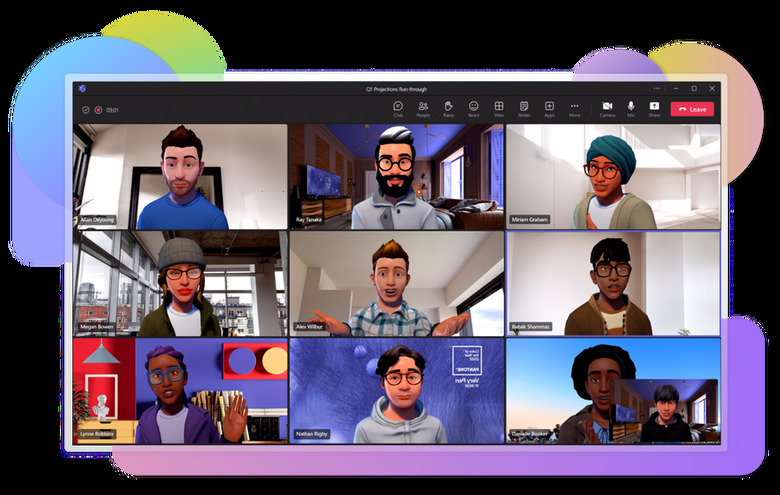3D Avatars Are Now In Microsoft Teams But I'm Wondering What Company Will Allow This
Microsoft Teams is starting to roll out 3D avatars in an effort to get more people to "turn their camera on."
In a blog post, the company announced that it is now rolling out 3D avatars for Microsoft Teams in a public preview. Those signed up for the preview can now turn themself into a fully customizable avatar while they are on a video call. Microsoft says that only 30% of people attend meetings with their video turned on, so the feature was made to encourage more people to participate in meetings with more than just a static photo or initials.
The company says that avatars will help people who need a video break and more:
Avatars for Microsoft Teams offers an alternative to the current binary option of video or no video. Avatars for Teams gives you that much-needed camera break, while still allowing you to collaborate effectively. Include more people in the conversation— whether they need a break due to video fatigue, are joining from a different time zone, or just feel more comfortable with their video off.
In the video below, you can see how to set up, customize, and use your 3D avatar while on a Teams call. Check it out below:
The company says that they have made a number of improvements with the version that is rolling out in the public preview. According to Microsoft, they have implemented a new lighting system that improves performance and enhances skin tones. They have also added more customization options for your wardrobe, headwear, and accessories. The last upgrade Microsoft has made is for emojis. The company says that "if you react using the Teams emoji reactions, your avatar will mimic that reaction with their body."
This is all great. If Microsoft can increase meeting engagement and collaboration by letting people turn themselves into avatars, I'm all for it. The problem I see isn't with the technology — it's with businesses' willingness to adopt it. I'm immediately wondering if companies will push back in allowing employees to use this option, claiming that they "want to see your REAL face." We'll have to see, but Microsoft is obviously coming up with the data to prove that such a feature is needed for all of us that work remotely.
Today's public preview comes on the same day that Microsoft announced its new version of Teams, which is also available in a limited preview.
